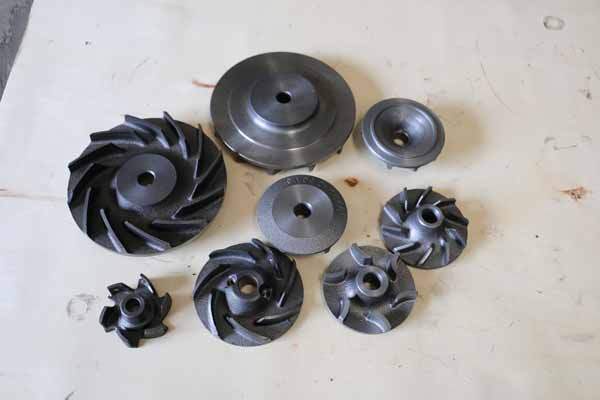Analysis of pollution and damage of mechanical hydraulic oil
First, the damage caused by water mixing into hydraulic oil
When water gets mixed with hydraulic oil, it can lead to serious issues. The most obvious sign is that the oil becomes cloudy and turns white due to emulsification. If the oil doesn’t have good anti-emulsification properties, the water won’t separate from the oil over time, keeping the fluid in a constant cloudy state. This emulsified oil can then enter the hydraulic system, leading to several problems. It not only causes rust on internal components but also reduces lubrication performance, increasing wear and decreasing system efficiency.
As rust forms on metal parts inside the system, the particles of rust can circulate through the pipes and components, spreading and causing more rust throughout the entire system. This leads to the formation of more oxides and further degradation of the system.
Water can also react with certain additives in the oil, creating harmful substances like sludge and varnish, which speed up the aging process of the oil. Additionally, sulfur and chlorine present in the water can combine with the oil to form acids such as sulfuric acid and hydrochloric acid. These acids increase abrasive wear on components and accelerate oil oxidation, sometimes even forming large amounts of sludge.
The water contaminants and oxidation byproducts act as catalysts for further chemical reactions, eventually leading to blockages, component seizure, and failure of the hydraulic system. They can clog distribution lines, reduce the efficiency of coolers, and cause oil filters to become blocked.
At low temperatures, water can freeze into tiny ice particles, which may get stuck in narrow passages or dead zones within control elements, causing operational issues.
Second, the dangers of impurities in hydraulic oil
Solid contaminants in hydraulic oil often come in the form of small particles. Some are left behind during the manufacturing or assembly of components, while others are generated during operation or introduced from external sources. These impurities can be extremely damaging.
Particles in the oil can cause significant wear on pumps and motors. When foreign materials enter the gear pump or motor, they can damage the gears, side plates, and housing. Similarly, in vane pumps or motors, these particles can get lodged between the blades and their grooves, or between the rotor and the oil distribution plate. In piston pumps, they may get caught between the plunger and cylinder bore, leading to sticking or increased wear. Even without complete failure, the presence of particles increases friction and can clog the oil filter, leading to cavitation and other issues.
Contaminants can also harm hydraulic cylinders. They can cause wear on the piston, cylinder block, and sealing elements, leading to increased oil leakage and reduced efficiency. If particles become stuck on the piston or rod, the cylinder may fail to move altogether.
In valves, particulate matter can cause sticking or blockage of throttle ports, resulting in malfunctions. Even if no immediate failure occurs, the presence of contaminants can cause premature movement of valve components, increasing clearance and reducing performance.
Moreover, some impurities can promote bacterial growth, accelerating oil aging and causing the oil to turn black with an unpleasant odor. This creates a cycle of contamination that leads to:
(1) Clogged oil filters, causing the oil pump to suck air and generate vibration and noise.
(2) Increased friction in cylinders or motors, leading to creeping motion.
(3) Complete failure of sensitive components like servo valves that are not resistant to contamination.
(4) Blockage of pressure gauge passages, making it impossible to accurately measure or transmit pressure.
This article was originally published by Gu'an Xinyang Filter Factory: http://...
Impeller normally applied in the centrifugal pumps.
Impeller is a rotating component equipped in the Pump Housing, help to transfer to energy from the motor that drives the pump to the fluid being pumped by accelerating the fluid outwards from the center of rotation.
QFAP supply various kinds of impellers to all over the world, main of our customers are from Europe, North America, Japan and Southeast of Asia.

Materials: grey Iron, ductile iron, steel castings, aluminum die castings, etc.
Surface treatment: painting, zinc plating, passivation, nickel plating, anodizing, polishing, etc.
Heat treatment: according to customer`s requirement.
QFAP have specialized in producing high precision Agriculture Parts more than 10years, Because of the long term cooperation, we could supply our customers not only the products but also our recommendation on the designs to saving costs.
Boat Impeller,Fan Impeller,Oil Pump Impeller,Blower Impeller
SHAOXING QIFENG AUTO PARTS CO., LTD. , https://www.sxqfap.com